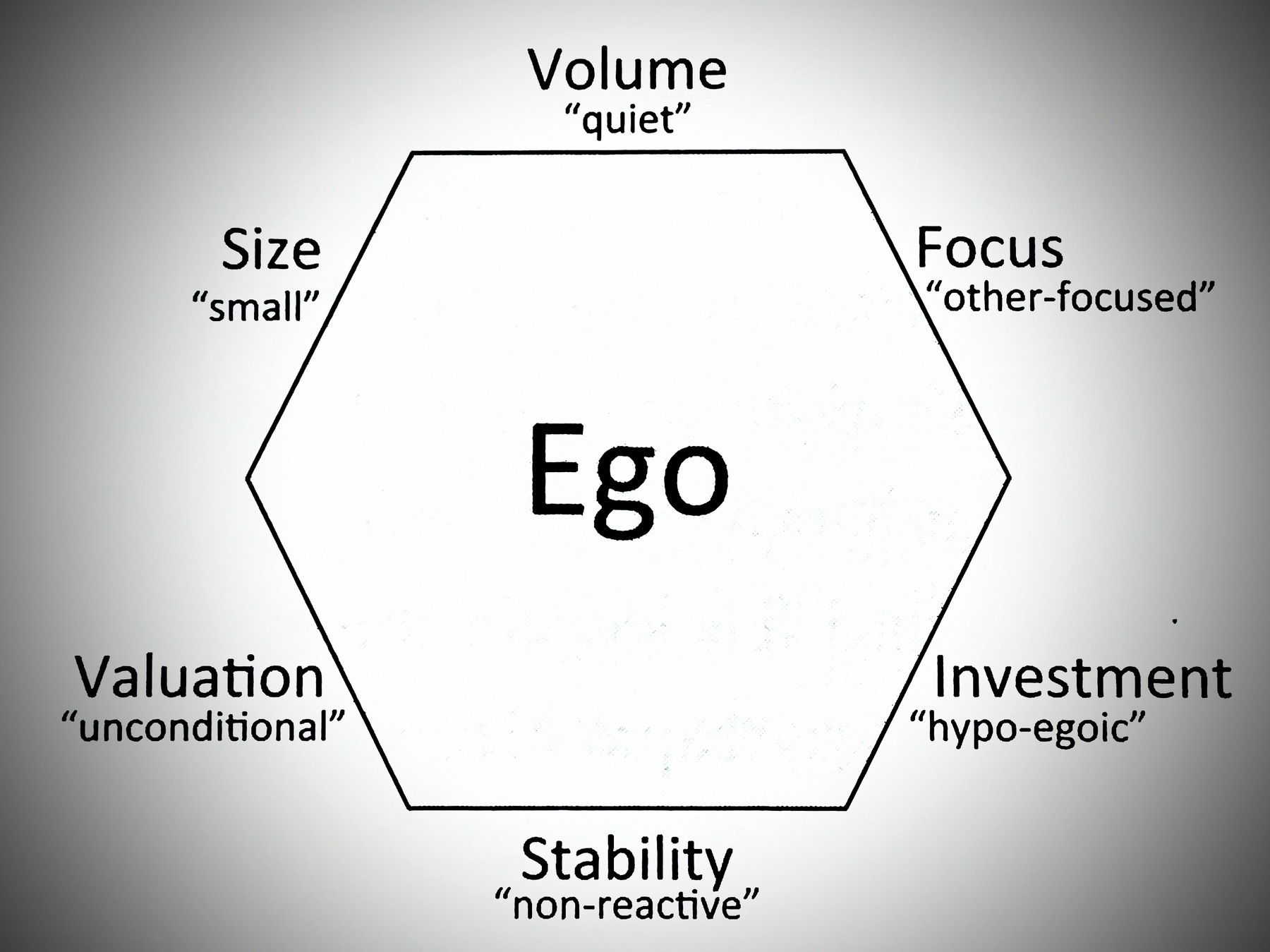I forgot to offer the traditional Advent greeting!
When did they start arming law enforcement with machete guns?

📚 The Shape of Joy
Read: The Shape of Joy by Richard Beck
Recommended

My Reading Highlights and Notes
- our focus has moved from outside to inside
- faith and spirituality are one of the best predictors of happiness and emotional well-being
- “shape” is referring to the curve of our attention
- “grace exists, and you have to turn away from yourself to find it”
- Cartesian doubt flipped the order of believing in facts from everything observable to the state of our own mind
- What Descartes did for truth, Freud did for mental health
- (and it’s hard to have a “clear, honest” view of ourselves)
- “scarcity trap” - where dealing with one area exacerbates another
- self-esteem can be thought of as the gap between who you are and who you want to be (success vs. pretensions)
- (this is dangerous with our appetites & comparisons & hedonic adaption, also dangerous because you “measure” it and it is variable)
- you can’t “talk someone out of” the cracks in the mirror that are their self-view of self-esteem
- “conspiracies proliferate because we prefer comforting lies over the unexplainable and mysterious”
- (they also create community and give us a “heroic purpose”)
- “there seems to be an asymmetry here between the magnitude of the hatred give the triviality of the subject matter” (this happens in fan culture because we have literally bought into meaning)
- “nothing defines the modern self better than how we vote”
Time, now, to hold up the mirror. I have a few questions to ask you: What’s your hero game? How are you exhausting yourself pursuing status, success, and significance? Why can’t you rest? What bike pump of self-esteem are you working at so furiously to fill your life with purpose? Where are you seeing the devil in the face of others? What are the prejudices at the root of your easy hatreds? I know you (probably) aren’t wearing a cape or a mask, but tell me: What’s your superhero complex?
- “our default mental state is that our minds wander, and getting lost within ourselves makes us unhappy”
- D: depressive rumination
- self-distancing technique: replace personal pronoun with your own name, helps with objectivity
- cognitive restructuring and CBT may still be rumination because it’s still focusing on your thoughts
- ACT (Acceptance and Commitment Therapy) goes a step beyond CBT in distancing
- (this gets to the observe/curious angle I’m familiar with in various approaches, like many mindfulness practices)
- contemplative prayer quiets the ego
- “humility is the foundation of happiness”
- (not talking about self-effacing, but less self-invested)
- “awe” and “wonder” can pull us outside ourselves
- “transcendence is the key to joy”
- “science knows the direction of joy and is happy to hand you a map, but science is silent on the source of joy”
- the “firmness” of material vs transcendent world has switched form how ancients experienced it
- we experience more awe from moral beauty than from physical beauty (e.g. courage & kindness over art & nature)
- relational/social “mattering” is important, but cosmic/existential “mattering” is far more important
- (especially since relationships can let you down, especially when you need them most)
- “our perception is affected by what we care about”
- meaning is determined by coherence, purpose, and mattering and joy affects all these and gives a narrative/anchor for 1 & 2
- gratitude also faces outward and is transcendent
- love (especially sacrificial love) must have a firm foundation in healthy ego, not doing the “goldilocks game”
- if you are struggling with the ego/transcendence, find people/things to love and care for: it pulls you outside of yourself
The good news: roof and skylight repair from Spring ‘23 damage is started
The bad news: likely won’t complete for 7 days
🖖 Silly Trek (aka Lower Decks) is the best Star Trek.
And yet, it can’t be the best Star Trek, because it depends on other Star Treks.
Discuss amongst yourselves.
Learned a new Secret Rule Parlor Game from my nephew, who picked it up at Northern Tier camp:
How Many Bears?
Also:
Good Moon, Bad Moon
🍌 bananas: for when you really want some fruit flies
🎲 Ran some Isle of Ixx again.
3 for 3 parties have had things go sour with the Hermit Spire!
🎶 the Shpongle guys made a chill piano & flute album
🗞️ following lots of great people, comics, and feeds, but it’s taking over a half an hour to read through it all each day.
So I’m culling, starting with:
- engagement farmers
- way-too-prolific posters
- shit-stirrers
- negativity drains
Watching X-men ‘92 with my nephew and dang I wish people would have learned something from X-men.
🐾 Happy Dog Show Day to all who celebrate.
Still waiting on Premier Protein to release an Egg Nog flavor.
🎶 One of the joys of re-ripping your CDs is going to back through gems you haven’t listened to in a while.
In the late 90s, Rhys Fulber was creating remixes for Fear Factory.
It’s some of his most interesting work amongst a mountain of diverse projects.
Which is worse?
Apple “reaction” texts
Google “reaction” emails
🎙️Scene On Radio all-stars used the phrase “objective but not neutral” and I think that’s a pretty useful framing for how to speak about events.
📚 The Ultimate Hidden Truth of the World…
Read: The Ultimate Hidden Truth of the World… by David Graeber (posthumously)
Recommended
This is a fine collection of Graeber’s essays, covering a variety of periods and topics, but building a robust overview of his work.
Though I have read some of these essays before, the quality of Graeber’s analysis, storytelling, and writing means that I was happy to read them again, and gained additional insights.
The essay “Are You an Anarchist?” reminds me of the “everyday anarchism” series I’ve oft considered writing. E.g. “When you do (thing), anarchism is among you.” ( Secret hint: you usually are an anarchist, or at least act like one.)
Note: I do not recommend the audiobook format.
📚 book recommendations:
I’ve updated my reading page with the latest few books I’ve completed.
📚 Dopamine Nation
Read: Dopamine Nation by Anna Lemke
Recommended
There was not much here that was completely new to me, but the stories were well-told, and it was a useful collection of reminders.
For example, I am reminded once again by the fact that having some self-directed misery in our lives helps us feel much better the rest of the time. Cold baths, ascetic practices, hard exercise, primitive camping, etc. can all help with our balance, perspective, and our physiological state of pain and pleasure.
And also again: leaning into survivable, copeable challenges is often the best way through, and leads to the most growth.
My Reading Highlights and Notes
From the Summary:
- The relentless pursuit of pleasure and avoidance of pain leads to pain
- Recovery begins with abstinence
- Abstinence resets the brain’s reward pathway, and with it our capacity to take joy in simpler pleasures
- Self-binding creates literal and metacognitive space between desire and consumption, a modern necessity in dopamine-overloaded world
- Medications can restore homeostasis, but consider what we lose by medicating away our pain
- Pressing on the pain side resets our balance to the side of pleasure
- Beware of getting addicted to pain
- Radical honesty promotes awareness, enhances intimacy, and fosters a “plenty” mindset
- Prosocial shame affirms that we belong to the human tribe
- Instead of running away from the world, we can find escape by immersing ourselves in it
🔒 The 2024 edition of CWE Top 25 is published:
Most Dangerous Software Weaknesses
“But what about the OWASP Top 10?” Think of the OWASP list as more of an engagement and learning tool.
The CWE 25 can more effectively be used as a target list to build your evaluation, mitigation, and prevention.